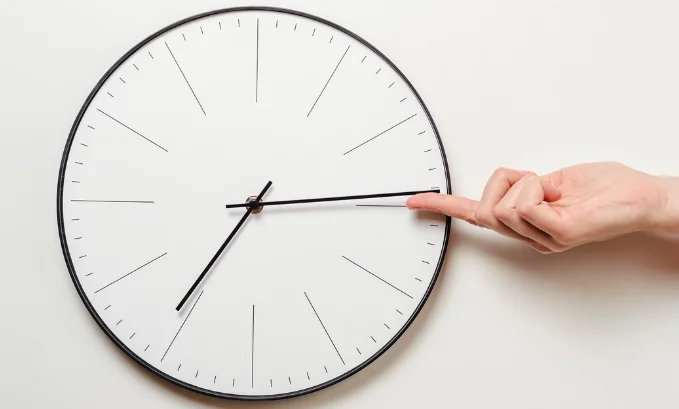Today’s topic is Hobbies and Time Management! On Saturdays, we serve food for thought, which might challenge what you believe are the “right” ways to spend your time! Today’s subject is the game of scholars – formally known as chess!
One of the world’s oldest trials of wit, chess is a 2-player, abstract-strategy board game typically played on a board with 64 squares (8×8 grid). Each player commands 16 pieces (white or black), including one king, one queen, two rooks, two bishops, two knights, and eight pawns. The player assigned the white pieces moves first, followed by the player assigned the black pieces. The endmost goal is simple; checkmate the opponent’s king, whereby the king is under attack (in “check”) and is rendered defenseless/moveless. There are also several ways that a match can end in a draw.
Chess is widely enjoyed by players of all ages and skill levels. For some, it offers but a friendly test of intelligence, whereas others have transformed this game into a competitive showcase for the intellectually elite. The latter is not without merit, as the title of “grand master” requires potential candidates to compete with existing masters – in addition to amassing an impressive Elo rating (a record) – for consideration.
Masters are widely recognized for their superior spatial intelligence and abilities to recognize/predict patterns; skills acquired through years of practice and refinement. These skills are not limited in their application to chess, as they provide various benefits in daily life, particularly in the realm of problem-solving. Recreational chess-play can provide similar benefits which have larger implications by way of psychological health.
From a biological standpoint, playing chess can improve neurological function. Firstly, it exercises both hemispheres of the brain. The left hemisphere is responsible for, amongst other things, object recognition and analytical decisions. On the other hand, the right hemisphere is responsible for visual recognition (of patterns) and spatial awareness.
Playing chess, and using its associated techniques, forces players to call upon both hemispheres of the brain. Therefore, regular practice has the potential to strengthen overall function; as is evident in dendrite growth, stimulated by consistent play. To elaborate, dendrites are the branched extensions of neurons, responsible for conducting neuronal signals from other neurons. By stimulating their growth, they are better able to send and receive signals, leaving them primed (and thus more efficient) for future use. In other words, this increases information processing and performance levels.
The aforementioned benefits have promoted the use of chess as a treatment for neurological/psychological disorders. The Albert Einstein College of Medicine at Yeshiva University produced a study linking chess (as a form of mental exercise) to the prevention of neurological deterioration stemming from Alzheimer’s. Similar findings showed that playing chess considerably reduced the risk of suffering from dementia, depression, and anxiety, and can also fight their symptoms.
In France, The Bron Cognitive Neuroscience Center set up daily chess-playing programs for schizophrenia patients. When compared to patients who were left out of the program, the chess players exhibited improved attentiveness and cognitive reasoning. Even those recovering from physical debilitation have something to gain from playing chess regularly. Its stimulating deep concentration helps to improve cognitive, motor, and communication skills; lost or damaged as a result of their condition.
Recreational players serve to gain just as much as those who use chess as a form of treatment. For children and adolescents, it seems that playing chess improves problem-solving skills, as is evident in increases in reading and math scores (in chess players). Similarly, chess has the potential to boost planning and foresight skills.
These virtues are matured in the prefrontal cortex, one of the areas of the brain that develops later in life. The above-mentioned demographic (children and adolescents), as well as older players, can expect to furth develop this part of the brain; the self-control required to apply strategies specifically calls on the prefrontal cortex. This aids in decision-making, reasoning, personality expression, and social cognition. Lastly, we have improved our self-confidence.
Regardless of whether you win or lose, chess lends itself to analyzing flaws in decision-making, thus prompting improvement. As you further hone your skills, you will become more comfortable and confident in your reasoning. This greatly increases mental strength, and boosts self-confidence levels!
So, if you’re looking for a thought-provoking hobby that benefits the mind and body alike, chess is the game for you! Why live life as a pawn, when abstract thinking can leave you feeling like a king? Ditch the screen, and find a friend, because you’ve got a game to play – Check. And. Mate. Until next time…
Author: Ryan Alvarez
References
- Demily, et al. (2008). The game of chess enhances cognitive abilities in schizophrenia. Schizophrenia Research. 107. 112-3. 10.1016/j.schres.2008.09.024.Doggers, Peter (2017) Does Chess Improve Cognitive Skills? What Science Says. Chess.com blog. Retrieved from https://www.chess.com/news/view/does-chess-improve-cognitive-skills-what-science-says-8574
- Sala, G., Foley, J. P., & Gobet, F. (2017). The Effects of Chess Instruction on Pupils’ Cognitive and Academic Skills: State of the Art and Theoretical Challenges. Frontiers in Psychology, 8, 238. doi:10.3389/fpsyg.2017.00238
- Wikimedia Foundation. (2022, November 29). Chess. Wikipedia. Retrieved December 11, 2022, from https://en.wikipedia.org/wiki/t
- Wikimedia Foundation. (2022, June 20). Spatial intelligence (psychology). Wikipedia. Retrieved December 11, 2022, from https://en.wikipedia.org/wiki/Spatial_intelligence_(psychology)






